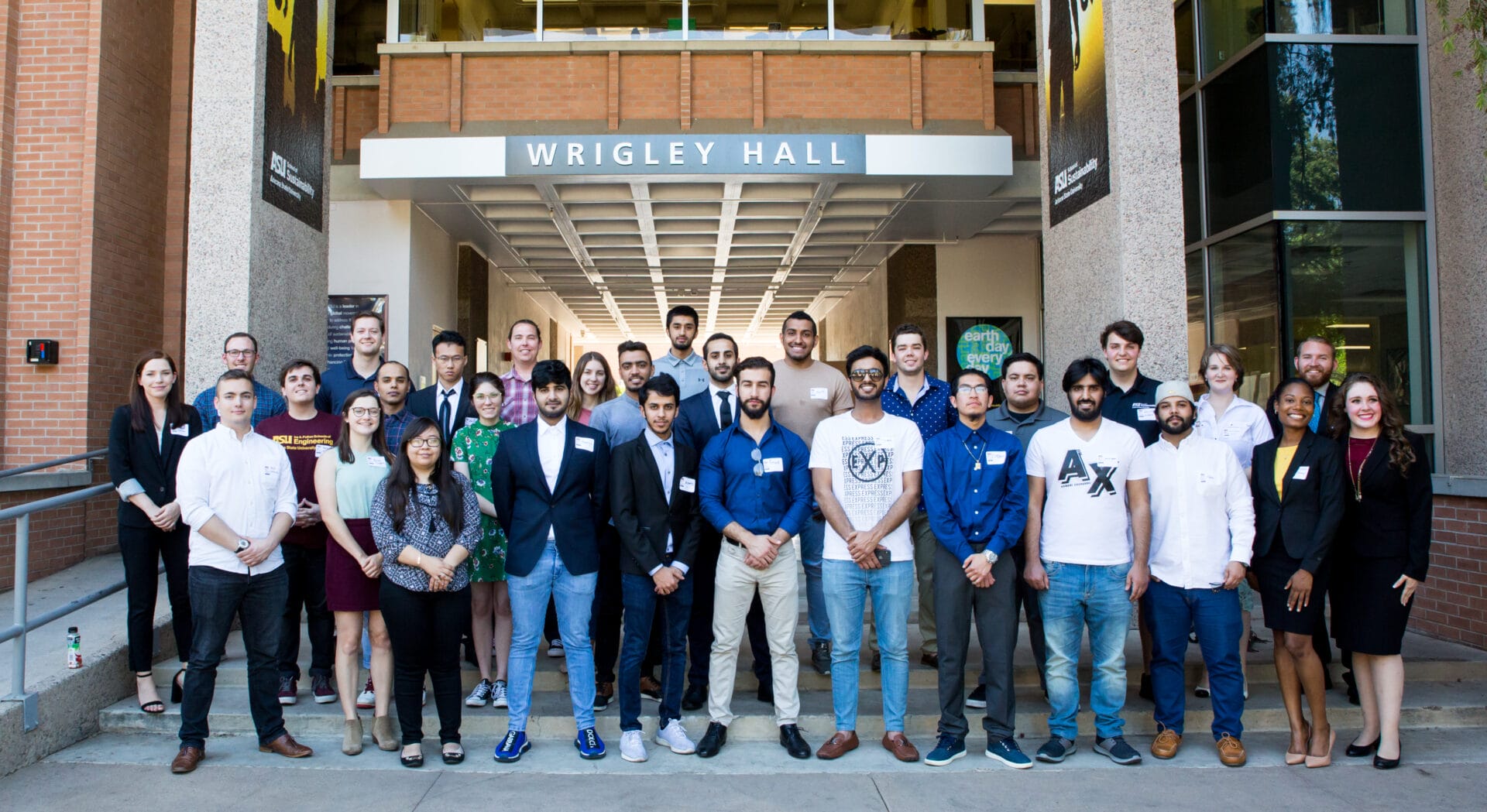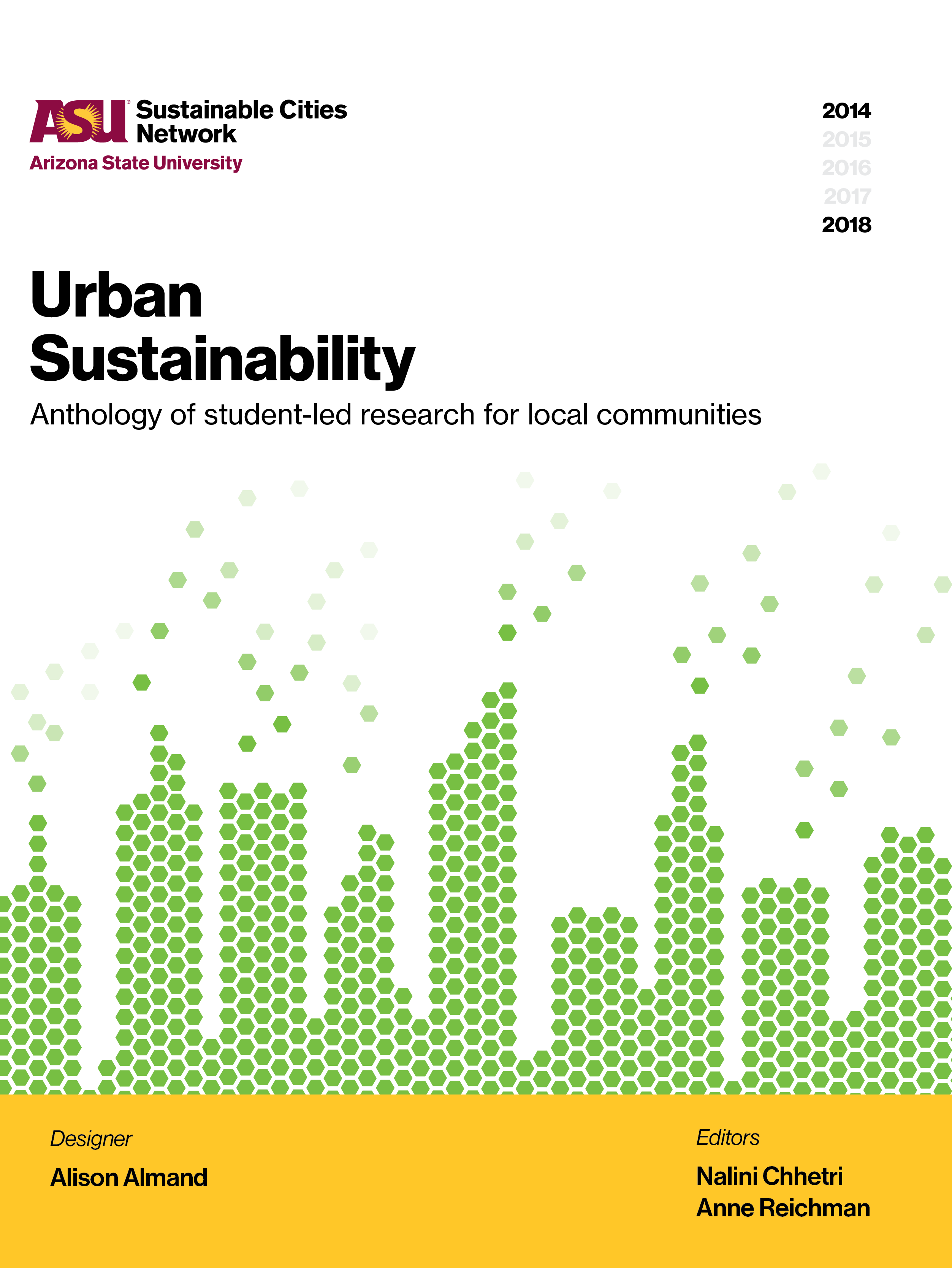
Student research
Cultivating tomorrow’s sustainability leaders
Over the years, SCN has identified a unique opportunity to connect cities, which often need more staff and resources to conduct meaningful research, with students eager to advance urban sustainability policies and practices. This is a win-win “real-world” experience that helps prepare students for professional careers.
The Network invited Valley cities to participate in one-off, semester-long sustainability projects via SOS 498/594 Urban Sustainability Best Practices and SOS 321 Policy & Governance in Sustainable Systems.
Recognizing an opportunity to continue growing collaborative municipal engagement, the Sustainable Cities Network formalized the university-community partnership through its new program, Project Cities, in 2017. Project Cities now enhances the educational experience of ASU students while furthering short- and long-term sustainability goals and initiatives in local communities.

Project Cities
Project Cities connects higher education with local communities, creating a powerful combination of knowledge and know-how. ASU faculty and students in designated courses work directly with a local community partner on predetermined sustainability-related projects and challenges to propose innovative sustainability solutions that enable progress toward a better future.
Urban Sustainability
Anthology of student-led research for local communities
This report is an anthology of project snapshots from a course focused on urban sustainability challenges, offering Arizona communities an accessible archive of research and recommendations. Each snapshot includes details on community partners, demographics, project outcomes, and alignment with the U.N. Sustainable Development Goals, providing a resource for communities to revisit and address similar issues.

Experiential learning
Urban Sustainability Best Practices
Urban Sustainability Best Practices and Case Studies was a graduate and senior-level course in the School of Sustainability designed by Nalini Chhetri and advised by Anne Reichman, Director of the Sustainable Cities Network. In this applied course, students collaborated with stakeholders from cities and municipalities to document and analyze best practices, draft case studies, and provide insight on various sustainability topics.
Policy and Governance in Sustainable Systems
SOS 321 Policy and Governance in Sustainable Systems was an undergraduate-level course taught and designed by Michael Schoon. Municipal clients presented challenges to students who provided research focusing on environmental, economic, and social solutions.